- Syria-Israel Normalization Pending between Al-Sharaa’s Willingness and Netanyahu’s Worry
- Iraq, the Strategic Middle Ground During Israeli-Iranian War
- Iran’s President Orders a Halt to Cooperation with The IAEA Over Political Issues
- The US Greenlights A $510 Million Arms Sale to Israel Amid Gaza Genocide
- German Media Allegations Rejected by Iran’s Embassy in Berlin
- Araghchi Stated That the Damage to Fordow Was Extensive
- Al-Sharaa Reportedly Held Private Talks with Israeli Officials on UAE Soil
- With Fresh Israeli War on Iran Looking Highly Likely, Can Tel Aviv Withstand a New Heavy Blow?
- Leader’s Aide Warns Israel and the US: ‘The Next Retaliation Will Surpass Your Expectations’
- Araghchi: Bombs Cannot Destroy Iran’s Uranium Enrichment Technology
Editor's Choice
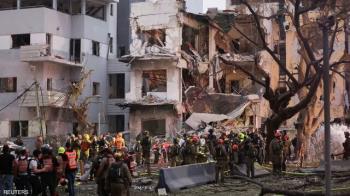
Netanyahu Striving to Drag US into War The Israeli regime is escalating its aggression against Iran to pave the way for American involvement in war.
What Factors Are Eroding Israeli Resilience in War with Iran? Israel is grappling with home crisis and costs of war and international opposition to its aggression on Iran can cost it dearly.
In Imam Khomeini’s Discourse, Palestinian Cause Is a Test of Right and Wrong Imam Khomeini of Iran raised the Palestinian cause as a criteria with which we can test who is the true advocate of human rights.
Can South Africa Apartheid Fall Offer Lessons to Check Israel? World unity against Israel can make a dramatic difference, but the Western support to Israeli crimes cannot be underestimated.
Moscow Security Meeting: New Architecture of International Security with Eastern Vision Russia meeting envisions rise of a new security mechanism with an Eastern approach far from abusive Western approaches.
News
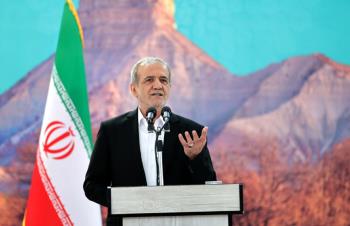
Iran’s President Orders a Halt to Cooperation with The IAEA Over Political Issues
Iran’s President Masoud Pezeshkian has officially approved legislation to halt cooperation with the IAEAThe US Greenlights A $510 Million Arms Sale to Israel Amid Gaza Genocide The US government has greenlit a $510 million arms sale to the Israeli regime, bolstering Washington’s military support
German Media Allegations Rejected by Iran’s Embassy in Berlin Recent claims by some German media about possible assaults on Jewish locations have been firmly rejected by the Iranian Embassy in Berlin
Araghchi Stated That the Damage to Fordow Was Extensive Precise information about what occurred at the Fordow nuclear site is not yet available. However, Araghchi believes the damage is significant
Al-Sharaa Reportedly Held Private Talks with Israeli Officials on UAE Soil The covert talks between Syrian President Ahmad al-Sharaa and Israeli intelligence reflect Damascus’ deliberate move away from the resistance bloc
Leader’s Aide Warns Israel and the US: ‘The Next Retaliation Will Surpass Your Expectations’ Iran’s next retaliatory strikes, should a new aggression occur, will be significantly more powerful than those during the recent 12-day Israeli conflict
Araghchi: Bombs Cannot Destroy Iran’s Uranium Enrichment Technology Iran’s expertise and resolve to develop its peaceful nuclear industry cannot be easily dismantled by military attacks
Gen. Vahidi: Iran’s Missile Capabilities Are in An Outstanding State Iran’s missile capability to counter the aggression of the criminal Zionist regime is in an excellent condition
Sheikh Qassem: Resistance Will Never Submit to The US And Israel The Hezbollah secretary general declares that the Lebanese resistance will never bow to the oppression of the United States and the occupying Israeli regime
Hamas Is Ready for Another Round of Indirect Gaza Ceasefire Talks with Israel A senior Hamas official states that the Palestinian resistance movement is prepared and committed to starting a new round of indirect talks with Israel
Foreign Minister Araghchi: Iran Firmly Supports a World Without Weapons of Mass Destruction The Islamic Republic of Iran has consistently championed the cause of a world free from weapons of mass destruction
German Chancellor Criticized for Anti-Iran Positions The spokesperson for the Iranian Foreign Ministry condemned Germany’s position on the Zionist regime’s recent aggression against Iran
Deputy Foreign Minister Rejects Reports of Iran-US Talks Planning An Iranian deputy foreign minister dismissed reports suggesting a new round of talks between Iran and the US is being planned
Ex-Parliament Speaker: Israel Failed to Assassinate Iran’s Leader and Top Government Officials Israel had planned to strike a high-level gathering of Iranian officials, including government heads, and subsequently assassinate the Leader
Iran Closely Monitors Israeli Actions Nearby Iran states it is closely watching any Israeli attempts to use neighboring countries’ territory for renewed aggression against the Islamic Republic
Iran Deployed Less Than 5% Of Its Defensive Capabilities Against Israel According to a top Iranian commander, Tehran utilized under five percent of its defensive strength in response to the Israeli regime’s recent unprovoked aggression
Parliament Speaker Criticizes Trump’s Rhetoric Against Iran Iranian Parliament Speaker Mohammad Baqer Qalibaf denounced the US president’s inconsistent positions and disrespectful rhetoric toward Iran
Iran Calls on UNSC to Designate US and Israel as Aggressors The Iranian foreign minister urged the UN Security Council to acknowledge the Israeli regime and the US as the perpetrators of the recent aggression against Iran
High-ranking General: Iran Is Skeptical About Israel’s Compliance with The Truce Iran’s Armed Forces Chief of Staff has expressed deep doubts about Israel honoring the US-declared unilateral ceasefire
Nearly 100,000 Palestinians Killed in Israel’s Gaza Genocide According to researchers, almost 100,000 Palestinians have been killed since Israel launched its genocidal war on the Gaza Strip in October 2023
Most Viewed
Iraq, the Strategic Middle Ground During Israeli-Iranian War
Syria-Israel Normalization Pending between Al-Sharaa’s Willingness and Netanyahu’s Worry
Israel and Multi-layer Losses in War with Iran
Iran Deployed Less Than 5% Of Its Defensive Capabilities Against Israel
High-ranking General: Iran Is Skeptical About Israel’s Compliance with The Truce
How Iran’s Triumph Over Israel Reshaped the Principles of Deterrence
Iran’s Supreme Leader Declared That the Zionist Regime Has Been Defeated
Iran Closely Monitors Israeli Actions Nearby
Araghchi: Bombs Cannot Destroy Iran’s Uranium Enrichment Technology
Iran Calls on UNSC to Designate US and Israel as Aggressors
Parliament Speaker Criticizes Trump’s Rhetoric Against Iran
Changing Air Power Balance: Will Iran Buy Chinese Fighter Jets?
Hamas Is Ready for Another Round of Indirect Gaza Ceasefire Talks with Israel
Al-Sharaa Reportedly Held Private Talks with Israeli Officials on UAE Soil
Leader’s Aide Warns Israel and the US: ‘The Next Retaliation Will Surpass Your Expectations’
Syria-Israel Normalization Pending between Al-Sharaa’s Willingness and Netanyahu’s Worry
The US Greenlights A $510 Million Arms Sale to Israel Amid Gaza Genocide
Iran’s Military Reports Shooting Down an Additional Israeli F-35 Fighter Jet
A Look at 22 Waves of Iran’s Operation True Promise III
Chaos in Los Angeles as California Rises against White House
Revelations Uncover Europe’s Support for Israeli Military Actions
Israeli Military Targets Humanitarian Vessel Madleen En Route to Gaza
Infiltrating Sinai: New Israeli Strategy in Gaza Sounds the Alarm to Egypt
Netanyahu Confirms Israel Has Supplied Arms to Gaza Militants Tied to ISIS
Ayatollah Khamenei Issues Stern Warning of Severe Retaliation to Israeli Regime Following Attack on Iran
In Imam Khomeini’s Discourse, Palestinian Cause Is a Test of Right and Wrong
Iran Criticizes G7 for Its One-Sided Statement
$100 Million Hunt: Why’s Downing Israeli F-35s Important to Iran?
Iran to Provide Response to US Proposal in Coming Days
Iran Hit a Jackpot Obtaining Top-secret Israeli Files
Iran Advocates for Broader Cooperation with Mexico
Iran’s FM Calls Israel Attack on IRIB "Cowardice and Desperation"
In Focus

Ansarullah
A Zaidi Shiite movement operating in Yemen. It seeks to establish a democratic government in Yemen.
Shiite
represents the second largest denomination of Islam. Shiites believe Ali (peace be upon him) to be prophet"s successor in the Caliphate.
Resistance
Axis of Resistances refers to countries and movements with common political goal, i.e., resisting against Zionist regime, America and other western powers. Iran, Syria, Hezbollah in Lebanon, and Hamas in Palestine are considered as the Axis of Resistance.
Persian Gulf Cooperation Council
A regional political u n i o n consisting of Arab states of the Persian Gulf, except for Iraq.
Taliban
Taliban is a Sunni fundamentalist movement in Afghanistan. It was founded by Mohammed Omar in 1994.
Wahhabism & Extremism
Wahhabism is an extremist pseudo-Sunni movement, which labels non-Wahhabi Muslims as apostates thus paving the way for their bloodshed.
Kurds
Kurds are an ethnic group in the Middle East, mostly inhabiting a region, which spans adjacent parts of Iran, Iraq, Syria, and Turkey. They are an Iranian people and speak the Kurdish languages, which form a subgroup of the Northwestern Iranian branch of Iranian languages.
NATO
The North Atlantic Treaty Organization is an intergovernmental military alliance based on the North Atlantic Treaty which was signed on 4 April 1949.
Islamic Awakening
Refers to a revival of the Islam throughout the world, that began in 1979 by Iranian Revolution that established an Islamic republic.
Al-Qaeda
A militant Sunni organization founded by Osama bin Laden at some point between 1988 and 1989
New node

Analysis

Analysis
Iraqis' Achievements in Salahuddin Caused the Americans Major Embarrassment
Saturday 7 March 2015
Alwaght-Before talking about the stages of the Iraqi military, backed with popular committees, offensive against ISIS in Tikrit, it is necessary to clarify the importance of the city location. Tikrit is located at a distance of 160 km northwest of Baghdad on the Tigris River, with a population of 370 000 inhabitants, and is the center of Salahuddin province. Historically, Tikrit’s strategic location represented the perfect rallying point for each power, which seek to control the northern region of Iraq. Tikrit is located between Baghdad and Mosul, the center of Ninawa province, and the first areas occupied by the ISIS terrorists in June 2014.

ISIS' Attacks on Christians: A Multipurpose Strategy
Sunday 8 March 2015
Alwaght-On February 23, ISIS attacked 35 Assyrian villages in northeast Syria. The fate of more than 300 Syrian Assyrian Christians hostages is still unclear. The leaders of Assyrian tribes are reportedly negotiating for the release of all hostages. In case, the negotiations were fruitful, ISIS will release them in exchange for captured ISIS militants in the Syrian jails. Otherwise, it is possible that they will be slaughtered just like the Egyptian Coptics who were beheaded in Libya, recently. Execution is a symbolic step by the terrorist group to make their goal in its war against Christians and other minorities clear for the whole world to see.
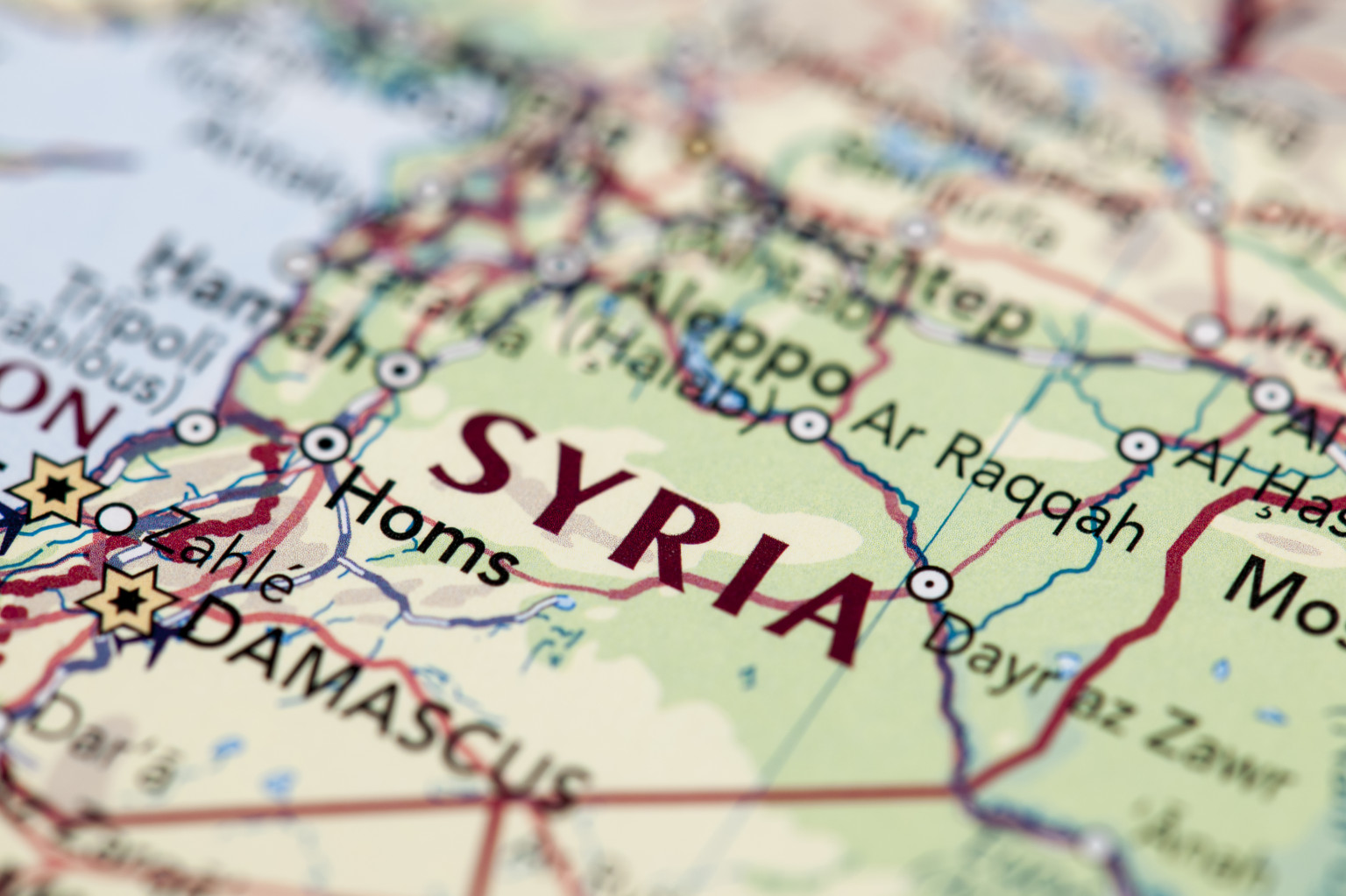
The US Strategy in Syria
Sunday 8 March 2015
Alwaght-The current crisis in Syria is the product of the US strategic view and approach to the West Asia [the West Asia]. Since even before the crisis, the Syrian government posed a regional challenge for the US; therefore, they sought to bring down the Assad regime. The revolutions that occurred in the region and especially in Egypt caused the confusion of the US at first, but quickly they tried to control the outcomes of these developments and bring them to their side. Nevertheless, the revolutions in Islamic Arab countries undermine the foundations of the US strategy in the region, causing the foreign policy of the US to take a reactive stance in the West Asia. In other words, US power in the West Asia came to its lowest level, since the fall of its ally governments in the region.

Nemtsov’s Murder: Suspects and Analysis
Tuesday 10 March 2015
Alwaght-Famous Russian opposition politician Boris Nemtsov has been shot dead in the center of Moscow. The shots came from a vehicle. Reportedly, Nemtsov had previously received death threats on social media sites. Suspects have been investigated with and some have confessed. Analysts conclude that the assassination plot has been designed in foreign countries.
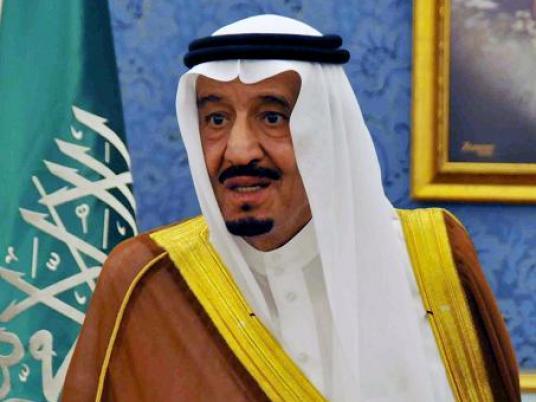
Diplomatic Activities of the Saudi King – Confronting ISIS in Pakistan
Wednesday 11 March 2015
Alwaght-The Saudi King , Salman bin Abdul-Aziz Al-Saud, has invited the Pakistani Prime Minister, Mohammad Nawaz Sharif, to Saudi; at the time where Pakistani officials were concerned regarding the accusations and critic toward the Saudi support of the extremist schools and groups. In the same context, the Saudi embassy in Islamabad tried to exonerate its country from these accusations; however, the Saudi and Pakistani Foreign Ministries have shown the existence of challenges between the two countries. Therefore, this visit can be considered an attempt to achieve different goals.

Taking-Hostages; Method for Financing Terrorist Groups
Saturday 14 March 2015
Alwaght- Last February, the UN Security Council passed an important Russian-sponsored resolution, Resolution 2199, aimed at tightening its crackdown on financing terrorist groups, in Iraq and Syria, through illicit oil sales, trading in antiquities and paying ransom for hostages.

Islamophobia in US and its Challenges for the Muslims
Saturday 14 March 2015
Alwaght-The recent shooting of three American Muslim students in Chapel Hill, North Carolina, has focused attention on anti-Muslim hatred in the US.
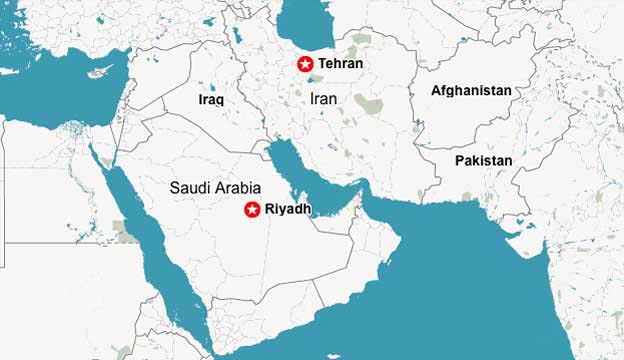
Saudi Tries to Consolidate an Anti-Iran Coalition
Sunday 15 March 2015
Alwaght- Indications assure that the Saudis are attempting to form a anti-Iran collation to counter Iran’s growing influence in the Middle East. The Saudi monarchy and its hardliner new king Salman bin Abdul Aziz are disturbed over the growing influence of Iran over Iraq, Syria, Lebanon and Yemen, for which Saudis feel besieged.

Why is Al Saud Buying All Those US-made Weapons?
Tuesday 17 March 2015
Alwaght- Saudi Arabia surpassed India to become the world's top importer of defense equipment in 2014, according to IHS, as global defense trade rose for the sixth straight year to $64.4 billion, up from $56.8 billion.

European official: Saudi, Israeli Regime Coordinated against Iran
Thursday 19 March 2015
Alwaght-According to an Israeli regime media report, Saudi Arabia has announced clearly the readiness of the monarchy to sell oil to the Israeli regime. Last November, Saudi petroleum minister, Ali al-Naimi, expressed willingness to sell oil to the Zionist regime. “His Majesty King Abdullah, who passed away last January, has always been a model for good relations between Saudi Arabia and other states,” Naimi told reporters, “and the “Jewish state” is no exception.”
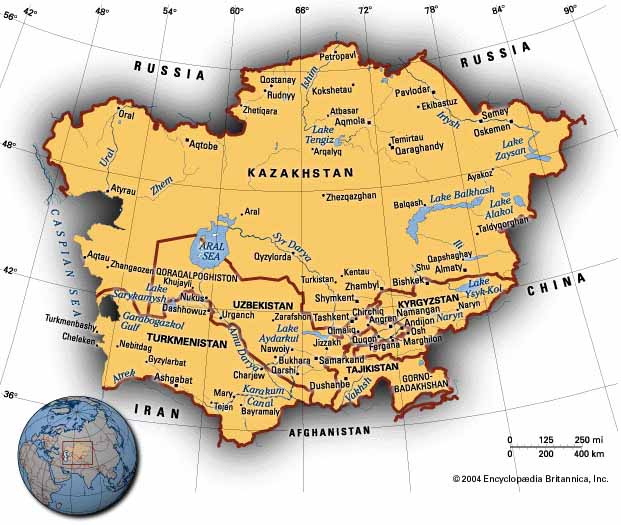
Central Asia, the Center of Extremists’ Activities
Wednesday 25 March 2015
Alwaght- At the moment Central Asia has two areas capable of triggering high-tensions; the first is the Fergana Valley, while the Northern Afghan borders with Central Asian countries, particularly Tajikistan and Turkmenistan represent the second area. Crisis in these areas threatens the security of Russia, China and Iran.
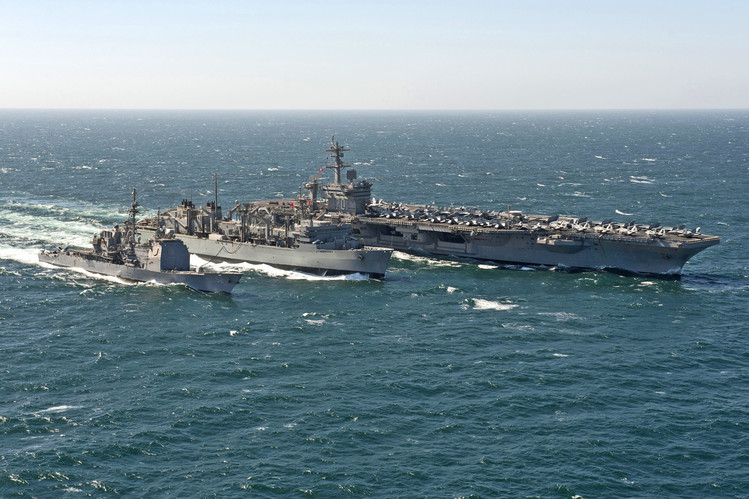
China Takes Over Securing the Middle East From The US
Thursday 26 March 2015
Alwaght- Maintaining regular Middle Eastern oil imports is China’s most important concern. Would China replace the US government in securing the Persian Gulf region?
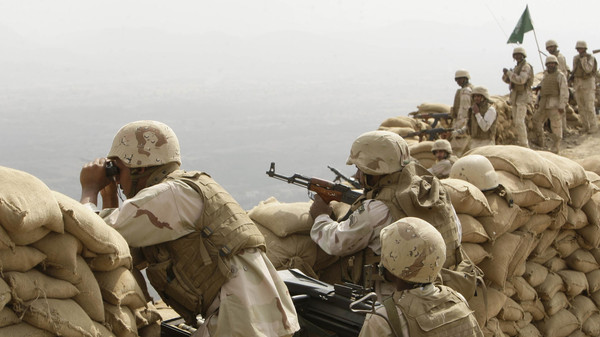
The implications of the Saudi-US military aggression on Yemen and it dangerous ramifications for the region
Friday 27 March 2015
Alwaght- Saudi Arabia and ten other countries, including the United States of America, launched a naked military aggression on Yemen. This step comes in the contest of Saudis attempt to pre-empt the popular revolution that was capable of defeating the former Saudi puppet regime of Abed Rabbo Mansour Hadi. Hadi escaped outside the country after Popular Committees backed by Yemeni military seized control over most of the Yemeni cities, in particular Adan the city which has been taken by Hadi as the presidential residence after he fled away from the Yemeni capital Sanaa.

Saudi's War on Yemen Sreves Israeli Regime's Interests
Saturday 28 March 2015
Alwaght- Israeli regime observes developments in Yemen including the recent Saudi aggression, as a battle between two fronts, namely a pro-Zionist front and the anti-Zionist front. This regime along with the so called “Moderate Arabs” share common interests, among of these is the Yemeni arena. Israeli regime's decision to send its aircrafts to bomb Yemen or to support Saudi-led coalition's measures would serve its interest; an interest that according to Israeli media is in accordance with Saudi interest in confronting common enemies. It was not pointless when the Prime Minister of the israeli regime in his latest speech delivered in the American Congress said that Sanaa is one of the capitals that has joined the Resistance front along with Baghdad, Beirut and Damascus. Netanyahu did not stop at that point, and called the “Moderate Arabs” to form a coalition to confront the common enemy, i.e. “Resistance front”, including Yemeni people.










